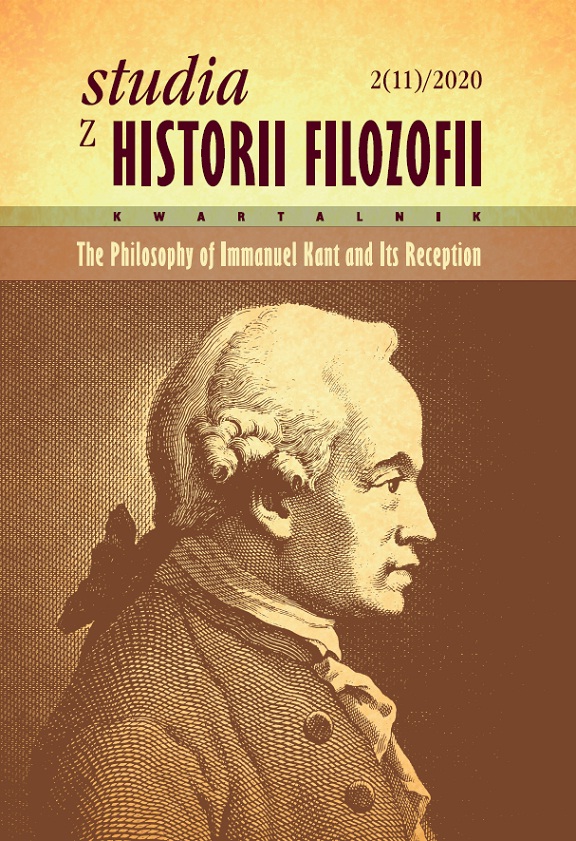How Is Moral Education Possible? Antinomies of the Kantian Philosophy of Education
DOI:
https://doi.org/10.12775/szhf.2020.016Słowa kluczowe
Immanuel Kant, autonomy, education, moral development, graceAbstrakt
This paper is an attempt to reconstruct (and therefore to interpret) the concept of moral education and development contained in Kant’s writings as well as to show ways to avoid the difficulties that arise within his system. The basic problem is how to reconcile – within one system – Kant’s conviction of the importance of upbringing with the claim that autonomy, treated both as the goal of education and a feature of a mature man, means no subordination to external influences, which indirectly questions the possibility of exerting educational influence. The similar question is Stanisław Gałkowski the relationship between respect for humanity and the belief that humanity relies on rationality and autonomy, which children do not yet possess. In my opinion, these difficulties can be dispelled by taking into account the subsequent phases of human development which can be found in the writings of the thinker from Königsberg, while pointing to the necessary role of grace as a causative agent of emerging human morality.
Bibliografia
Gałkowski Jerzy W. 1971. “Z historii pojęcia wolności – Duns Szkot, Kant, Sartre”. Roczniki Filozoficzne XIX (2): 63–88.
Gałkowski Stanisław. 2016. Długomyślność. Wprowadzenie do filozofii wychowania. Kraków: Akademia Ignatianum, Wydawnictwo WAM.
Höffe Otfried. 1995. Immanuel Kant. Transl. Andrzej. M. Kaniowski, Warszawa: PWN.
Kant Immanuel. 1999. Groundwork of The Metaphysics of Moral. In: Immanuel Kant. 1999. Practical Philosophy. Transl. Mary J. Gregor. Cambridge: University Press.
Kant Immanuel. 1999. The Metaphysics of Moral. In: Immanuel Kant. 1999. Practical Philosophy. Transl. Mary J. Gregor. Cambridge: Cambridge University Press.
Kant Immanuel. 2006. Anthropology from a Pragmatic Point of View. Transl. Robert B. Louden. Cambridge: Cambridge University Press.
Kant Immanuel. 2016. Critique of Practical Reason. Transl. Thomas Kingsmill Abbott. In: Immanuel Kant. 2016. The Collected Works. Hastings: Delphi Classics.
Kant Immanuel. 2016. On Education. Transl. Annette Churton. In: Immanuel Kant. The Collected Works. Hastings: Delphi Classics.
Kant Immanuel. 2016. Religion Within the Bounds of Bare Reason. Transl. Thomas Kingsmill Abbott. In: Immanuel Kant. The Collected Works. Hastings: Delphi Classics.
Kuderowicz Zbigniew. 2000. Kant. Warszawa: Wiedza Powszechna.
MacIntyre Alasdair. 2007. After Virtue. A Study in Moral Theory. Notre Dame: University of Notre Dame Press.
Wojtyła Karol. 1991. Zagadnienie podmiotu moralności. Lublin: RW KUL.
Woroniecki Jacek. 1986. Katolicka etyka wychowawcza. Vol. 1. Lublin: RW KUL.
Pobrania
Opublikowane
Jak cytować
Numer
Dział
Statystyki
Liczba wyświetleń i pobrań: 405
Liczba cytowań: 0



